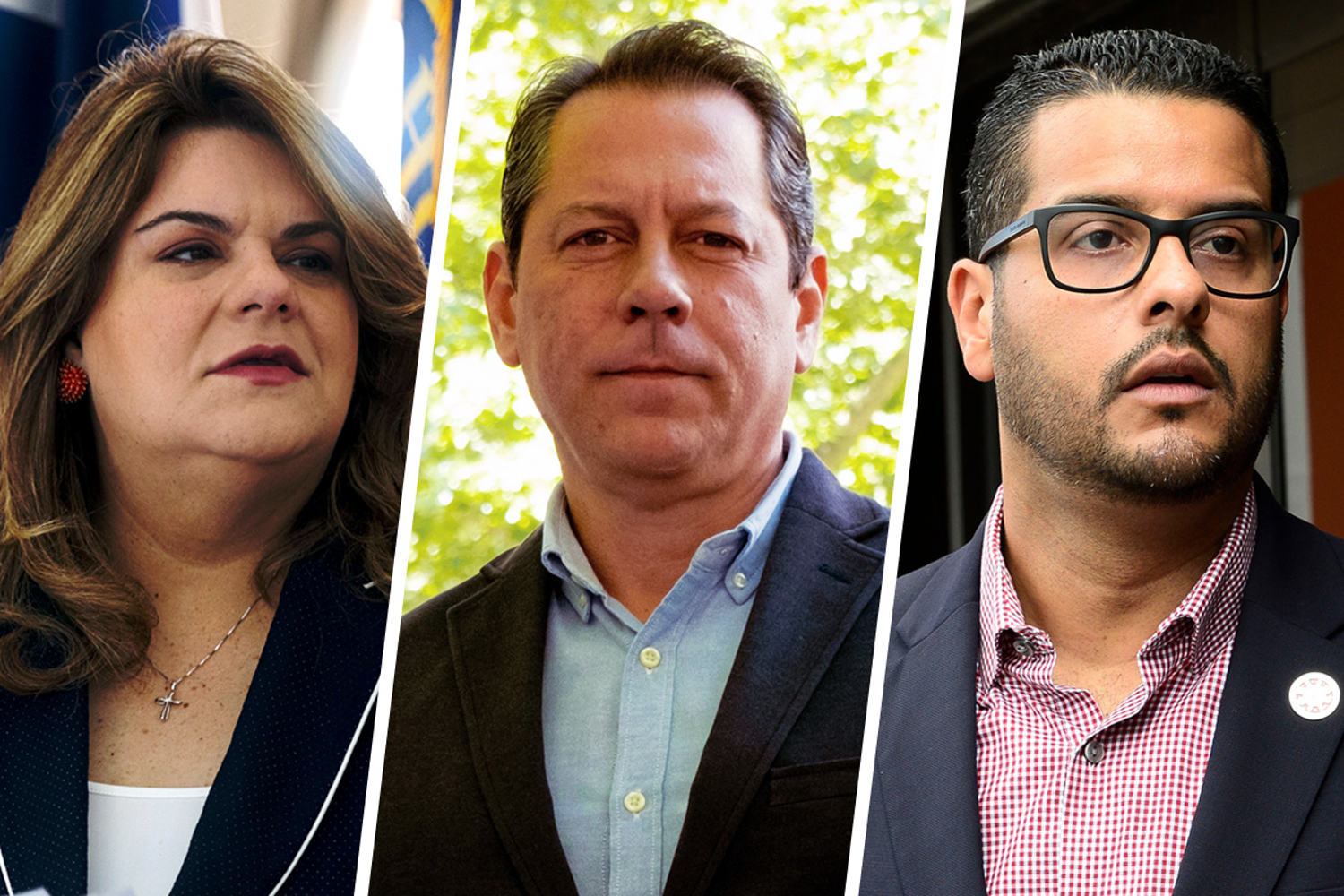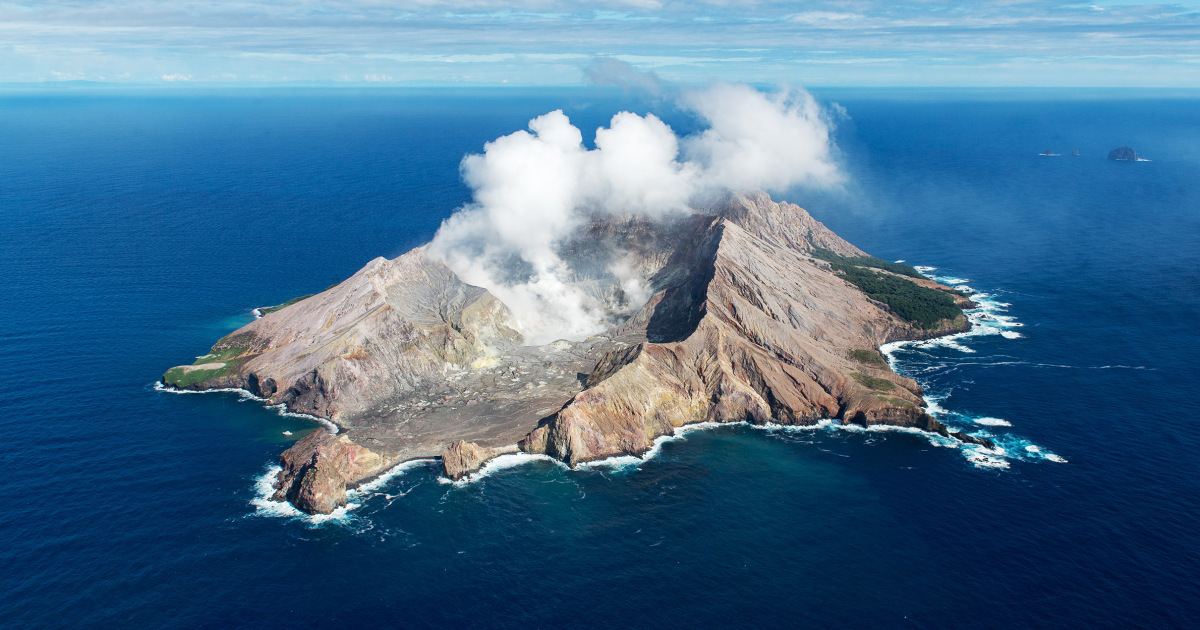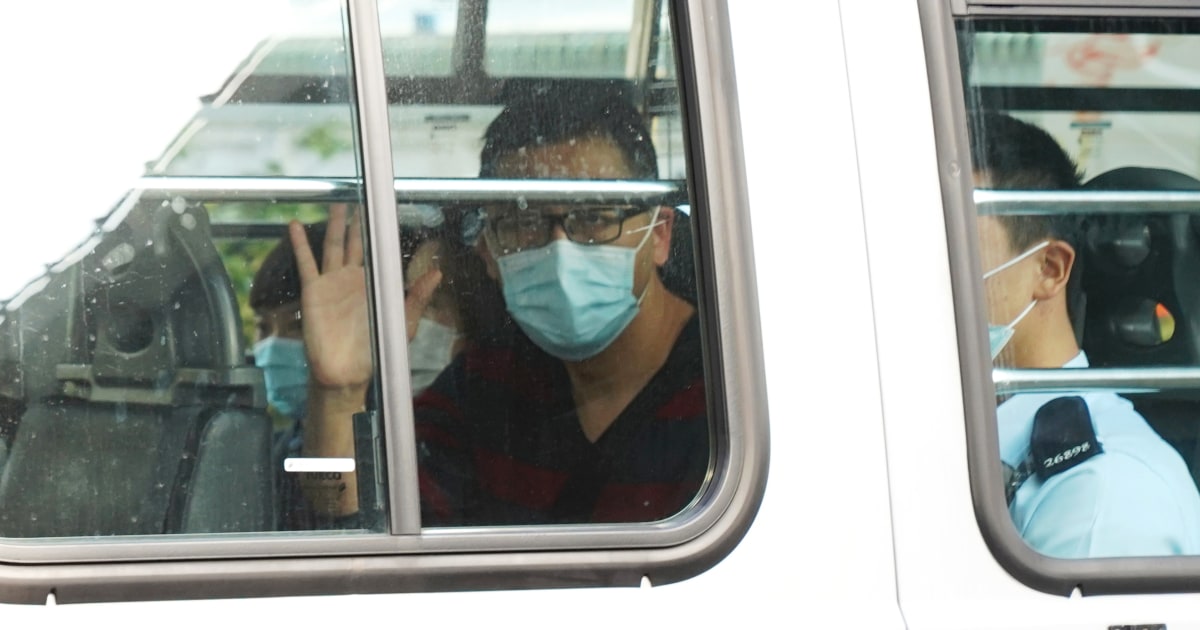
Voters in Puerto Rico will be electing a new governor next week, ending an unprecedented race in which a new coalition party has emerged with a strong chance to prevail ahead of the two longstanding traditional parties.
Over the past seven decades, Puerto Rico has been governed by the pro-statehood New Progressive Party, currently in office held by Gov. Pedro Pierluisi, or by the Popular Democratic Party, which supports the island’s current territorial status. And in every election during this time, the front-runners have been candidates from these two parties.
This year, however, the candidate from the Puerto Rican Independence Party, a minority party that advocates for the island’s independence from the U.S., has had a breakthrough.
Independence Party candidate Juan Dalmau has gained enough momentum to have a fighting chance at defeating Jenniffer Gonzalez, the candidate from the incumbent pro-statehood party, and relegating the candidate from the Popular Democratic Party, Jesús Manuel Ortiz, to third place.
But Dalmau’s growing support is not necessarily related to more Puerto Ricans supporting independence. Instead, he’s become the face of “Alianza,” a new coalition between the Independence Party and the Citizens’ Victory Movement — a party founded in 2019 by several people who had unsuccessful bids as separate, independent candidates in 2016.
After the 2020 election, the two smaller parties realized that if they came together under a “strategic alliance,” they could gain enough support to potentially beat the incumbent party, said Carlos Vargas-Ramos, a political scientist at the Center for Puerto Rican Studies at Hunter College in New York.
Under “Alianza” (Alliance), the coalition has branded itself as a movement opposing the pro-statehood party and the Popular Democratic Party by promising to prioritize good governance over the issue of Puerto Rico’s status, serving as an alluring alternative for voters who feel let down by both traditional parties.
Frustration and hopelessness across the Puerto Rican electorate first began to become evident in 2016, when a record-low voter turnout of 55% was reported, an unusual milestone for an island known for high voter turnouts of 73% to 89%. Voter turnout remained unchanged in the 2020 election.
The low turnouts were preceded by a string of crises that eroded people’s trust in Puerto Rican government institutions.
Islanders have been dealing with economic turmoil stemming from a financial crisis that reached its boiling point in 2015, when Puerto Rico accumulated about $72 billion in public debt — yet, unlike other U.S. jurisdictions, couldn’t legally file for bankruptcy. As a result, Congress passed the PROMESA law in 2016 to create a federally appointed fiscal oversight board to allow Puerto Rico to restructure its debt.
As the board managed the largest public debt restructuring in U.S. history, it implemented tough austerity measures that prompted layoffs of public workers and cuts to health care and education budgets. In addition to this, Puerto Rico was hit by devastating natural disasters that include 2017’s Hurricane María and a series of earthquakes in 2020 and the pandemic.
In 2019, Puerto Ricans took to the streets to participate in its largest protest in recent history to oust then-Gov. Ricardo Rosselló following a political scandal involving him and a dozen members of his Cabinet.
‘Something different’ vs. ‘continuance’
For a generation of young Puerto Ricans like Cristina Rodríguez, 31, who have lived during these crises and blame the parties in power, “Alianza” is an option to bring much-needed change.
“The ‘Alianza’ not only has the youth to change things, but I think they also remember, from their own experience, how previous governments have failed us during our entire upbringing, and everything my generation had to put up with growing up,” Rodriguez said. “I have a lot of hope that for the first time I am seeing that something different is going to happen.”
But “Alianza” still faces a big challenge with voters who have historically viewed the issues of good governance as intrinsically tied to Puerto Rico’s current territorial status or don’t want to disrupt the traditional party system.
Iraida Quiñones, a savvy and energetic 89-year-old who has long been a loyal follower of the pro-territory Popular Democratic Party, will be voting for her party’s candidate, Ortiz, on Election Day “even if it’s the last thing I do.”
Quiñones, like many supporters of “Alianza,” is unsatisfied with the last three governors, all of them from the pro-statehood party. But she believes that voting for another traditional party is her best bet at toppling the incumbent party.
Avid statehood supporter and former island Housing Secretary Miguel Hernández, 51, said he already voted by mail for González to ensure “the continuance of the current government.”
Fears of independence
Among the voters “Alianza” is looking to attract, there’s still a significant number that seem unable to set aside Dalmau’s support for independence, despite the fact he’s running a campaign prioritizing “honest government” and not on seeking independence if elected.
The large majority of Puerto Ricans favor statehood or its current territorial relationship with the U.S. Historically, the island’s chances to meaningfully explore independence as an option have been staunched by the U.S., which considered Puerto Rico an important military asset during the two World Wars and the Cold War, especially after neighboring Cuba became communist under Castro. Puerto Rico’s history includes local gag laws to a government-sanctioned surveillance program known as “las carpetas” to persecuting independence supporters and even killings.
Dalmau’s main opponent, pro-statehood candidate González, has been leading in the polls and has used this complicated history to her advantage — crafting political attacks distorting Dalmau’s platform promoting social democracy to argue that he wants communism for Puerto Rico.
Jorge Schmidt Nieto, a political science professor at the University of Puerto Rico in Mayagüez, said the attacks have proven to be effective among voters whose Cold War-era fears remain almost intact.
Complicating things for “Alianza” is the way Puerto Rico’s 2020 electoral law restructured the election process in a way that, in practice, has given the ruling party “an institutional advantage,” Schmidt Nieto said.
One of these advantages is allowing parties and candidates to provide ballots to those who vote early. Since the statehood party is the largest, they have the infrastructure to leverage this advantage in a big way and have virtually secured around 200,000 votes for González, Schmidt Nieto said.
Against this background, an array of allegations of possible voter fraud have emerged, with a report from Puerto Rico’s Center from Investigative Journalism finding that at least 5,872 deceased individuals appeared as voting in the 2020 and 2016 elections.
The Department of Justice has since appointed a District Election Officer to oversee voting rights violations in Puerto Rico under its Election Day Program.
Who shows up to vote — and its potential impact
González is currently the island’s resident commissioner, which is Puerto Rico’s nonvoting representative in Congress. Unlike Gov. Pierluisi, who supports Vice President Kamala Harris, González supports former President Donald Trump. Ortiz, the Popular Democratic candidate, supports Harris.
All the gubernatorial candidates including González have spoken out against comedian Tony Hinchcliffe’s racist jokes calling Puerto Rico “a floating island of garbage,” with Dalmau and Ortiz also criticizing González for supporting Trump.
With polls putting González ahead of Dalmau by about 8 percentage points, Charles Venator-Santiago, director of the Puerto Rican Studies Initiative at the University of Connecticut, said he “wouldn’t be surprised if Dalmau edges a victory.”
According to Venator-Santiago, if enough young people turn out to vote and a fourth emergent party called Project Dignity, which favors a Christian democracy, gets enough statehood supporters to vote for their gubernatorial candidate, Javier Jiménez, Puerto Rico could make history by electing a governor from a party that has never been in office before.
“The gap is not that wide. Now the question is, who is going to show up to vote or not show up to vote around the island?” Venator-Santiago, said.
Election Day in Puerto Rico is on Nov. 5.








